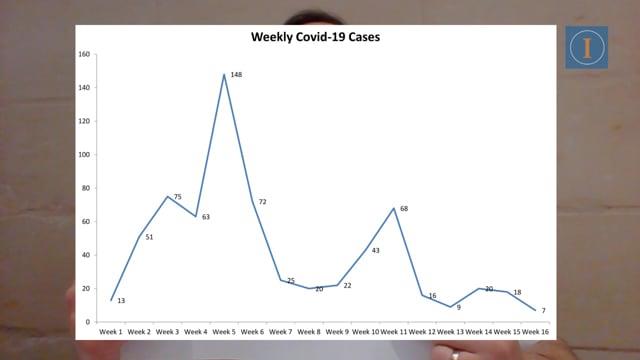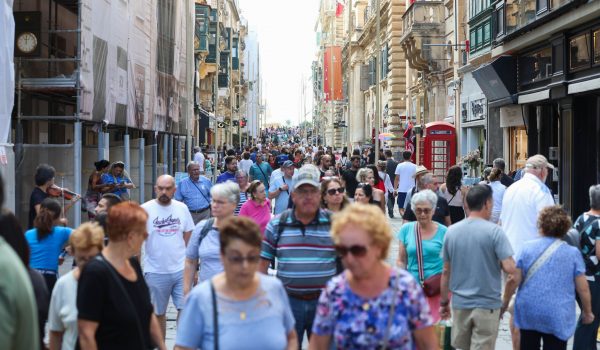
Malta’s COVID-19 reproduction number has dropped to 0.41 over the course of the last week, after the most positive week from the beginning of the pandemic to date, statistician Vincent Marmara told The Malta Independent on Sunday in his weekly exclusive video blog.
The last week saw only 7 new cases of the pandemic be found, the lowest number since the start of the virus’ spread in Malta on 7 March – now almost four months ago. In fact, last week saw three consecutive days where no new cases were found, while no new cases we found on Saturday as well.
This compares favourably with the previous two weeks where 18 and 20 new cases respectively were found.
Marmara explained that even when it comes to comparing the total number of new cases against the total number of tests carried out, the numbers are positive, with only 0.1% of tests returning a positive result – again the lowest since the start of the pandemic.
This has all led to Malta’s reproduction number to fall to 0.41, having been at 0.58 last week.
The reproduction number of the virus is one of the key figures which countries across the world have been trying to reduce ever since the COVID-19 pandemic began. The aim for countries has been to reduce the ratio to a level of 1 – which would mean that one person would transmit the virus to one other person.
Malta’s reproduction number has been below 1 since 20 May, now over a month ago.
Marmara said that the fact that the number of cases continued to decrease even while restrictions were relaxed means that the pandemic was controlled well, and remains under control and without negative effects on the population.
However, he noted, the country will now enter a new phase when it comes to the analysis of the pandemic.
Malta’s airport will open for tourism from a select number of countries this Wednesday, before opening fully two weeks later on 15 July.
Marmara said that one now must study the effect that tourism will leave when it comes to COVID-19.
He added, however, that if cases increase a bit it is still not a source of concern. “If the increase is controlled and the reproduction number is kept below 1, then there is no need for alarm,” he said.
This is why, he noted, the pandemic should continue to be studied every day in order to ensure that it will remain under control.
Source: Malta Independent



